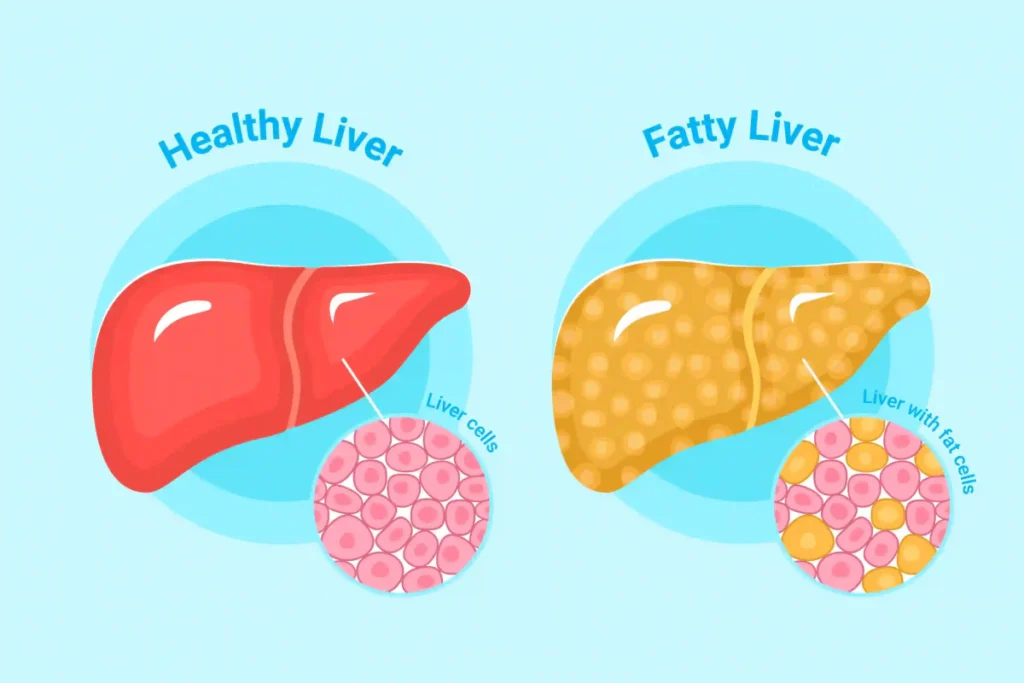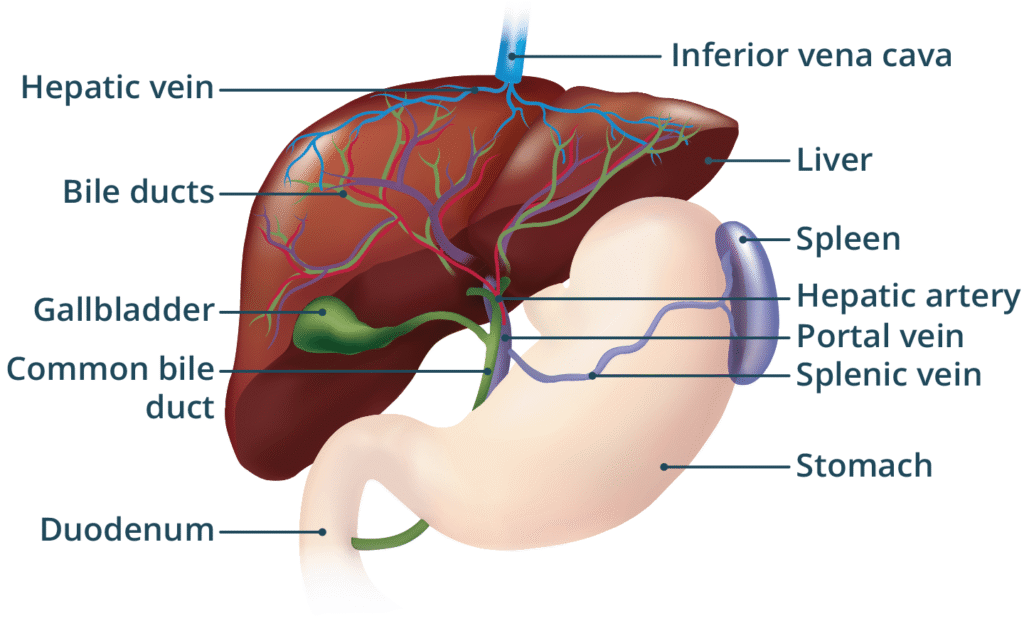Introduction
Liver detox has become one of the most talked-about wellness trends in recent years — and for good reason. The liver is a vital organ responsible for hundreds of functions including filtering toxins, metabolizing nutrients, regulating hormones, and supporting the immune system. When your liver is overburdened by processed foods, alcohol, medications, or environmental toxins, its efficiency can drop, leading to fatigue, skin problems, digestive issues, and even weight gain.
In this comprehensive guide, we’ll explore the science behind liver detox, signs you may need one, various detox methods, myths vs. facts, and actionable tips to naturally support your liver health for the long haul.

What Is a Liver Detox?
A liver detox refers to any process or protocol aimed at cleansing and supporting the liver’s natural ability to eliminate harmful substances from the body. This can include:
- Dietary changes (e.g., elimination diets or juice fasts)
- Herbal supplements (e.g., milk thistle, dandelion root)
- Lifestyle shifts (e.g., reducing alcohol, increasing hydration)
- Medical or IV-based detox programs
Unlike fads or “quick fixes,” a real liver detox should be safe, evidence-informed, and supportive of the body’s natural systems.
Why Is Liver Health So Important?
The liver performs more than 500 critical functions, such as:
- Filtering and removing toxins from the blood
- Breaking down hormones and balancing blood sugar
- Producing bile for fat digestion
- Storing vitamins and minerals (A, D, B12, iron, copper)
- Metabolizing medications, alcohol, and drugs
Without optimal liver function, your overall health will suffer. A sluggish or inflamed liver may lead to:
- Fatigue and brain fog
- Acne, eczema, or dull skin
- Bloating or constipation
- Poor immunity
- Unexplained weight gain
- Hormonal imbalances
Signs You May Need a Liver Detox
How do you know your liver needs support? Look for these common symptoms:
- Chronic fatigue
- Digestive discomfort (gas, bloating, indigestion)
- Bad breath or body odor
- Sugar and caffeine cravings
- Irritability or mood swings
- Difficulty losing weight
- Frequent headaches
- Yellowing eyes or skin (in more serious cases)

The Science Behind Liver Detoxification
Detoxification is a natural two-phase biochemical process your liver uses to neutralize and eliminate harmful compounds.
Phase I: Modification
In this phase, enzymes like cytochrome P450 convert toxins into intermediate forms. These can sometimes be more toxic than the original substance.
Phase II: Conjugation
Here, the liver adds molecules (like sulfur, glycine, or glutathione) to make toxins water-soluble so they can be excreted through urine or bile.
Supporting both phases with proper nutrients (such as B vitamins, sulfur-containing foods, and antioxidants) is crucial for an effective detox.
Natural Liver Detox Strategies
1. Eat Liver-Friendly Foods
- Cruciferous vegetables (broccoli, cabbage, kale)
- Leafy greens (spinach, arugula, dandelion)
- Garlic and onions
- Beets and carrots
- Turmeric and ginger
- Avocados and walnuts
2. Stay Hydrated
Water supports kidney and liver filtration. Aim for at least 2–3 liters per day.
3. Limit Toxin Exposure
- Reduce alcohol intake
- Avoid processed foods and refined sugar
- Use natural cleaning and personal care products
4. Supplement Wisely
Consider clinically supported supplements such as:
- Milk Thistle: Contains silymarin, which supports liver cell regeneration
- NAC (N-Acetyl Cysteine): Precursor to glutathione, the body’s master antioxidant
- Dandelion Root: Natural diuretic that supports bile flow
- Artichoke Leaf Extract: Enhances detox enzymes and bile secretion
5. Try Intermittent Fasting
Allowing longer fasting windows (12–16 hours) can give your liver time to repair and regenerate.
Popular Liver Detox Methods Compared
| Method | Pros | Cons |
| Juice Cleanse | Nutrient-dense, anti-inflammatory | Low in protein and fiber; not sustainable |
| Herbal Supplement Protocol | Supports liver function with botanicals | May interact with medications |
| Intermittent Fasting | Boosts metabolism, simple to follow | Can be difficult for beginners |
| IV Detox Therapy | Rapid delivery of antioxidants | Expensive and needs medical supervision |
| Alcohol Elimination Plan | Reduces toxin load, improves liver health | Requires discipline, slow results |
Common Myths About Liver Detox
“The liver needs detoxing just like a clogged pipe.”
Reality: The liver is self-cleansing. But supporting its natural processes through healthy habits can significantly enhance its efficiency.
“All detox teas and juice cleanses are good for the liver.”
Reality: Many commercial detox products are unregulated and ineffective. Some may even be harmful.
“You only need a detox if you’re an alcoholic.”
Reality: Even moderate alcohol use, pollution, medications, and poor diet contribute to liver stress.
“If you don’t have symptoms, your liver is fine.”
Reality: Liver dysfunction is often silent until it becomes advanced. Prevention is key.
Pros and Cons of Liver Detox Programs
Pros
- Improved digestion and energy
- Clearer skin and better mood
- Better hormonal balance
- Strengthened immune system
- Potential weight loss and fat metabolism
Cons
- May be overhyped in marketing
- Some methods lack scientific validation
- Not suitable for people with certain medical conditions
- Rapid cleanses may cause temporary fatigue or discomfort
Who Should Avoid Liver Detox Programs?
- Pregnant or breastfeeding women
- Individuals with chronic liver disease (e.g., cirrhosis, hepatitis)
- People taking liver-impacting medications
- Children and elderly individuals without medical clearance
Always consult a healthcare provider before starting a detox protocol, especially if you have pre-existing conditions.
How Long Does a Liver Detox Take?
The ideal liver detox period depends on the method:
- Dietary changes: At least 2–4 weeks
- Supplement protocols: 1–3 months
- Fasting or alcohol breaks: Ongoing lifestyle habits

Short-term cleanses may offer a quick reboot, but long-term liver health depends on consistency.
FAQs About Liver Detox
1. Do I need to fast during a liver detox?
No. While intermittent fasting can help, a liver detox can be effective with regular meals rich in whole foods.
2. Can liver detox help with weight loss?
Yes, indirectly. A well-functioning liver supports metabolism, fat burning, and hormone regulation, which can aid weight management.
3. How often should I detox my liver?
If you’re healthy, once or twice a year may be sufficient. If you consume alcohol, take medications, or live in a polluted area, more frequent support may be beneficial.
4. Are liver detox supplements safe?
Some are, especially those backed by research (like milk thistle or NAC). However, always buy from reputable brands and consult a doctor.
Conclusion: Should You Try a Liver Detox?
A liver detox isn’t about quick fixes or trendy teas. It’s about making informed, sustainable changes that empower your body’s natural detoxification processes. Whether you start by adding more greens to your plate, cutting back on alcohol, or incorporating targeted supplements — every step matters.
Your liver works hard 24/7. Give it the support it deserves.

